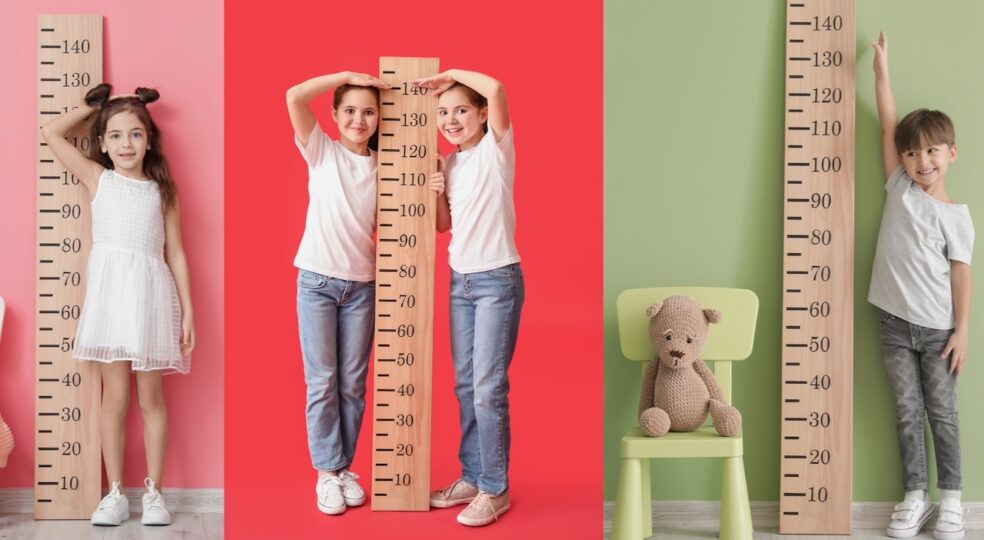
Anyone who has children knows it: Sometimes they seem to develop at a rapid pace. Then again, there are phases in which development seems to stagnate. This ranges from learning to walk and talk, the first challenges at school, to physical and mental maturation in adolescence.
If a child does not make the same progress as his or her peers, many parents quickly become concerned. Developmental stages provide guidance as to the average age at which children acquire which cognitive abilities. There are various models in this regard, which we would like to take a closer look at below.
The Swiss biologist Jean Piaget is considered one of the most respected scientists in the field of child cognitive developmental psychology. He divides child development into the following four stages:
Maria Montessori has been one of the first female doctors in Italy at the beginning of the twentieth century. Her attention was mainly focused on disadvantaged children from working class neighborhoods. Based on her long experience, she conceived a 3-step model that follows a six-year rhythm:
The German-American psychoanalyst Erik Homburger Erikson divides a person's cognitive development into eight stages:

During childhood, skills and experiences are acquired that shape a person for life. If developmental stages are omitted or not fully passed through, this can have far-reaching consequences.
According to Piaget, a next stage of development can only be reached when the previous one has been completed. If development falters at one point, the entire process is impaired. This is why it is so important to monitor developmental delays carefully.
Especially in the area of school and learning, it is particularly noticeable when a child does not go through the same stages of development as their classmates. Learning blocks are not uncommon. In many cases Poor grades and truancy are an indication of other problems in the interpersonal sphere, e.g. bullying by classmates or teachers.
At around 13.3 % of all children, according to the Studies However, a diagnosable learning disorder is present, which does not necessarily have to be accompanied by a low IQ. A learning coach can help your child rediscover his or her natural joy of learning and improve his or her personal IQ. Potential to exploit.
Tip: Even you as a parent can have a Learning coach training to better support your child and, if necessary, other children. Likewise to find out what kind of Learning type your child is and how you can improve their learning time based on that. To get you started, we would like to introduce you to our free e-book "The 10 best tips for fun and success in learning". to the heart.

Researchers agree that the foundation for healthy development is laid in the first years of life. As a parent, you can therefore contribute a lot to the smooth passage of your child's mental and physical developmental stages.
In this context, we would like to introduce you to the reference book "Fundamentals of developmental psychology"by Dr. Gabriele Haug-Schnabel and Dr. Joachim Bensel. In their renowned work, the experts deal with the cognitive development in the first ten years of life and summarize the latest scientific findings in an understandable way.
In addition to mental developmental stages, physical developmental stages also play a key role in enabling children to lead a full-fledged adult life one day. For this reason, children are examined closely as part of the so-called U examinations. However, the intervals between the U examinations at the pediatrician's office increase over time.
In addition to the examination of motor and language skills, children are measured and weighed at each examination appointment to ensure that they are developing appropriately for their age. If extreme growth delays are noticed, a determination of the bone age and, if necessary, a substitution with growth hormones may be required.
Sometime between the ages of eleven and thirteen, puberty finally begins, known in the trade as adolescence. Boys are usually a little later than girls. A final growth spurt follows and the secondary sexual characteristics are formed. At the end of puberty, girls and boys have become adult women and men.
To be able to interact with other people, children need social and emotional skills. However, these are not innate, but must be learned. The child's first caregivers - the parents - play a decisive role in this. By turning to their child and responding to his or her needs, the basic trust is strengthened, which has a strong impact on later relationships.
In kindergarten, children then come into contact with their peers for the first time on a longer-term basis. In order to find their way in the community, they first have to learn about their own emotions before they can empathy can develop. This is a development process that is reflected in the various developmental stage models.
As mentioned earlier, the attachment behavior that your child has to you as a parent is decisive for whether he or she can open up to other people. The more securely a child is bound to its closest attachment figures, the easier it is for it to make contact. In this context, the Attachment theories of Bowbly and Ainsworth revealing.
According to Piaget, two aspects in particular are crucial for children's cognitive development: assimilation and accommodation. Assimilation means that the child applies schemata already known to him to new environmental experiences. Example: A child who knows how to eat an apple will also be able to eat a pear without any problems.
Accommodation is the next stage after assimilation. The child is confronted with environmental stimuli that it cannot cope with through assimilation because it has not yet had comparable experiences. However, it is able to adapt to the situation and expand its experience so that it finds a solution and learns in the long term.
All parents naturally want to promote their child's development in the best possible way. The following tips can support you in this:
Already in infancy, respond to your child's needs as quickly as possible. Don't worry, you are not spoiling or spoiling your child, but rather strengthening the elementarily important basic trust. Never let an infant cry alone and accompany your toddler sensitively during tantrums instead of ignoring him.
Children want to explore the world with all their senses. Support them in this by offering them new stimuli again and again. Of course, these should be age-appropriate. Take your child outside instead of parking them in front of the TV. Let yourself be infected by the child's curiosity and learn new things together.
Keep in mind that although the developmental stages provide a good orientation, each child is still individual. So it's not a tragedy if your child reaches one developmental stage later than others. As long as continuous progress can be observed, albeit at its own pace, everything is fine.
The developmental stages are milestones in your child's cognitive development. He will go through all the stages at his own pace until he has the cognitive abilities of an adult by the end of adolescence.
If you feel that your child's development is stalled for a variety of reasons, most notably poor academic performance, a learning coach can be a valuable support for your child.

